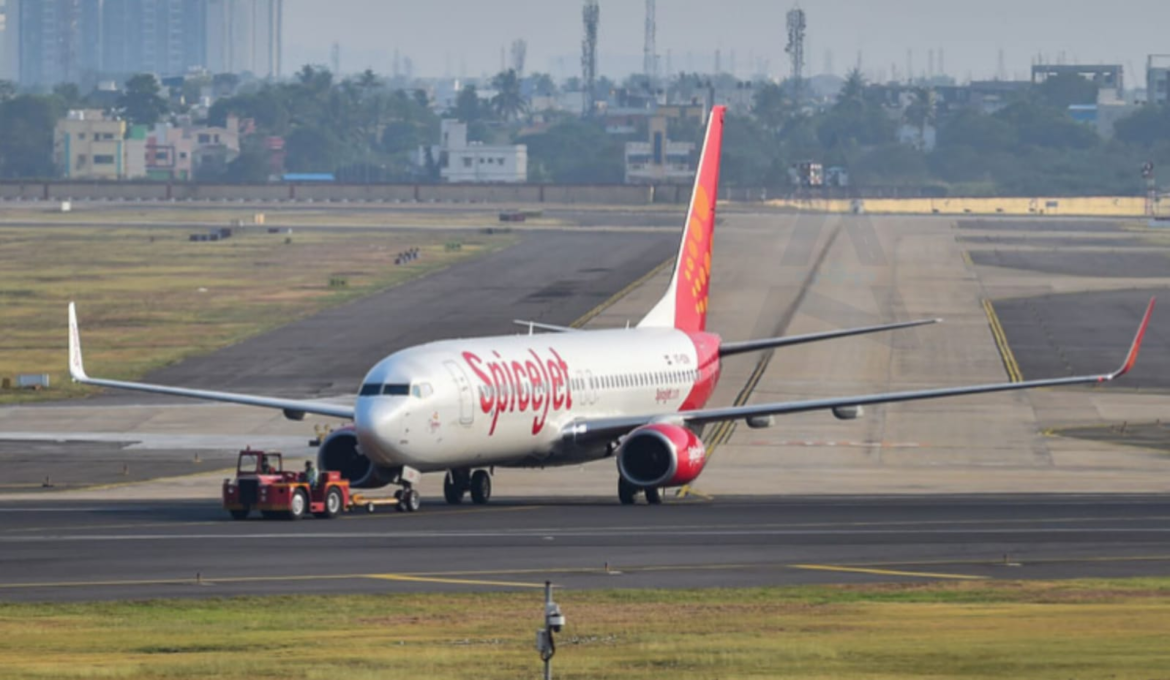The duopoly of Air India and SpiceJet in providing security services to foreign airlines operating in India has officially ended, marking a significant shift in the country’s aviation sector. This regulatory change now allows airports to provide security services directly to international airlines, opening the door to increased efficiency, competition, and flexibility in the way these services are managed.
For many years, Air India and SpiceJet were the only two carriers authorized by the Indian government to perform security-related functions such as passenger screening, baggage checks, and other essential safety procedures for foreign airlines at Indian airports. This arrangement created a duopoly, limiting the choice foreign carriers had in selecting service providers for these critical operations. While the system ensured a uniform approach to security, it also introduced potential bottlenecks and dependency on just two airlines, leading to challenges in optimizing services and costs.
By allowing airports to now directly manage and provide these security services, the Indian government has paved the way for more streamlined operations. International airlines will no longer be limited to choosing between Air India and SpiceJet for their security needs. Instead, they can now work with the airports themselves, which are expected to offer more comprehensive, integrated services. This change could also enhance competition, encouraging airports to improve their efficiency, service quality, and overall management of security operations.
For foreign airlines, this shift represents a significant improvement in terms of cost management and operational flexibility. Previously, these carriers had to coordinate with one of the two authorized airlines to manage their security functions, potentially leading to higher costs and more complex logistics. Now, with the ability to directly engage airports for these services, foreign carriers may benefit from lower costs, simplified processes, and more responsive security measures tailored to their specific needs.
This regulatory development aligns with India’s broader push to liberalize its aviation sector and reduce the dominance of key players in specific operational areas. The move is part of a larger trend towards decentralization and enhanced airport autonomy, which seeks to promote competition, improve service quality, and reduce operational inefficiencies. By allowing airports more control over the services provided within their facilities, the government is encouraging innovation, better coordination, and potentially higher standards of security and service.
The new policy is also expected to have positive impacts on passengers. With foreign airlines potentially benefiting from more cost-effective and streamlined security services, this could translate into smoother travel experiences for international travelers. Faster security processing, improved coordination between airlines and airports, and potentially lower operational costs for airlines may lead to a more seamless airport experience for passengers flying into and out of India.
For airports, the ability to manage these services directly allows for greater control over security protocols and service delivery. Many of India’s airports, particularly larger hubs like Delhi, Mumbai, and Bangalore, have the necessary infrastructure and technology to efficiently handle security for international carriers. These airports can now leverage their resources to provide more integrated and cohesive services, improving overall airport management.
The end of the Air India-SpiceJet duopoly is seen as a positive step towards increasing competition in India’s aviation sector. It reflects the government’s focus on enhancing the role of private and public airports in contributing to the nation’s growing aviation needs. As India continues to experience rapid growth in both domestic and international air travel, the importance of flexible and efficient airport operations becomes even more critical.
This policy change could also have a ripple effect on other areas of airport management. By granting airports more authority over their operations, India may see further innovations in ground handling, passenger services, and cargo management. These improvements could position Indian airports as more attractive destinations for international airlines, enhancing the country’s connectivity and status as a key aviation hub in the Asia-Pacific region.
In conclusion, the decision to end the duopoly of Air India and SpiceJet in providing security services to foreign airlines is a transformative step for India’s aviation industry. It will empower airports to take a more active role in security management, foster competition, and likely result in enhanced services for international carriers and passengers alike. This move is in line with India’s ongoing efforts to modernize its aviation infrastructure, improve service delivery, and cement its position as a major player in global aviation.

